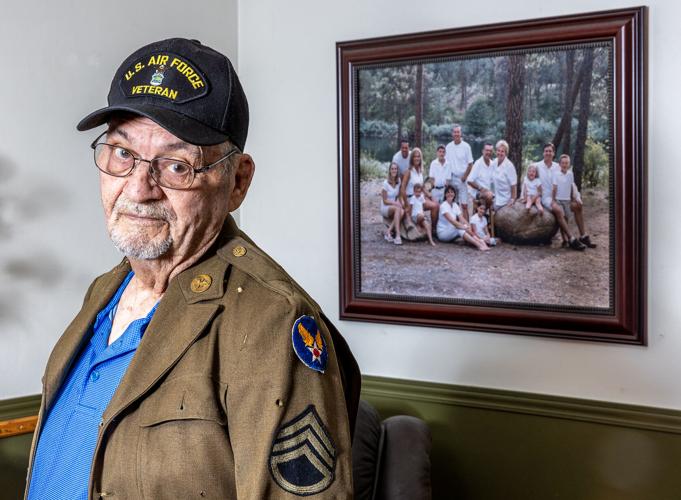
70 years later, Korean War vet reflects on enlistment
Listen
(Runtime 1:31)
Read
When Richard Larsen enlisted in the Air Force in June of 1951, he came straight out of high school. He said back then, it was just what you did.
“You wanted to be a part of defending our country,” he said.
For four years, Richard, now 90, worked as an aerial radio operator and served in Korea.
Richard came from a family of people who had served in the Coast Guard, but he bucked the trend by enlisting in the Air Force instead. Unlike today, enlisting was taken as a given for many young men at the time, said his wife, Deborah Larsen.
Working as a radio operator was always interesting, he said, because he never knew what he’d hear.
“You’d be surprised, what you heard, and what you had to deal with,” Richard said.
Life in the Air Force was challenging, Richard said. His commanding officers were tough men, and the work was never without risk.
Richard worked in a guarded office in the middle of camp but also on planes. On one occasion, a plane he was riding in had to make an emergency landing on a beach after mechanical failures.
Sitting in their Clarkston home recently, Deborah turned to him.
“Did you feel important?” she asked.
“Oh, no,” he said. “No, we just did our job.”
Even years later, Deborah said, Richard still remembered Morse Code.
“I didn’t marry him until he was, I believe, 45. And, he still would tell us what was on the old movies,” she said.
Deborah recalled a story she heard from Richard’s mother. He had come home at dinner time, not telling anyone he’d be there.
“She felt so bad, because she cooked rice that night,” Deborah said. Despite having eaten plenty of rice in Korea, Deborah said with a laugh, Richard still liked it.
There was one food he missed during his deployment.
Though Richard struggles to recall some details and put them into words since a stroke years ago, he didn’t have to think twice recalling the treat he waited to have for four years.
“I wanted to go out and have ice cream,” he said. “Strawberry.”
In the years Richard served, he was never in a position that got much attention, Deborah said. But the work he and countless other personnel did was just as important.
“Richard’s job, like so many, was not the kind that gets much attention, like the pilots do,” Deborah wrote in a letter to the Tribune.
But Deborah said something she admires in him, and many of the men who served at the time, was a willingness to do what they believed was right in the face of adversity.
“Dick is not the life of the party,” she said. “But [he is] loyal. That’s the way most of the boys were at that time. They knew their job. That doesn’t mean they weren’t afraid of it. But they knew their job, and they did their job. Dick has always been the one to always do the right thing.”















